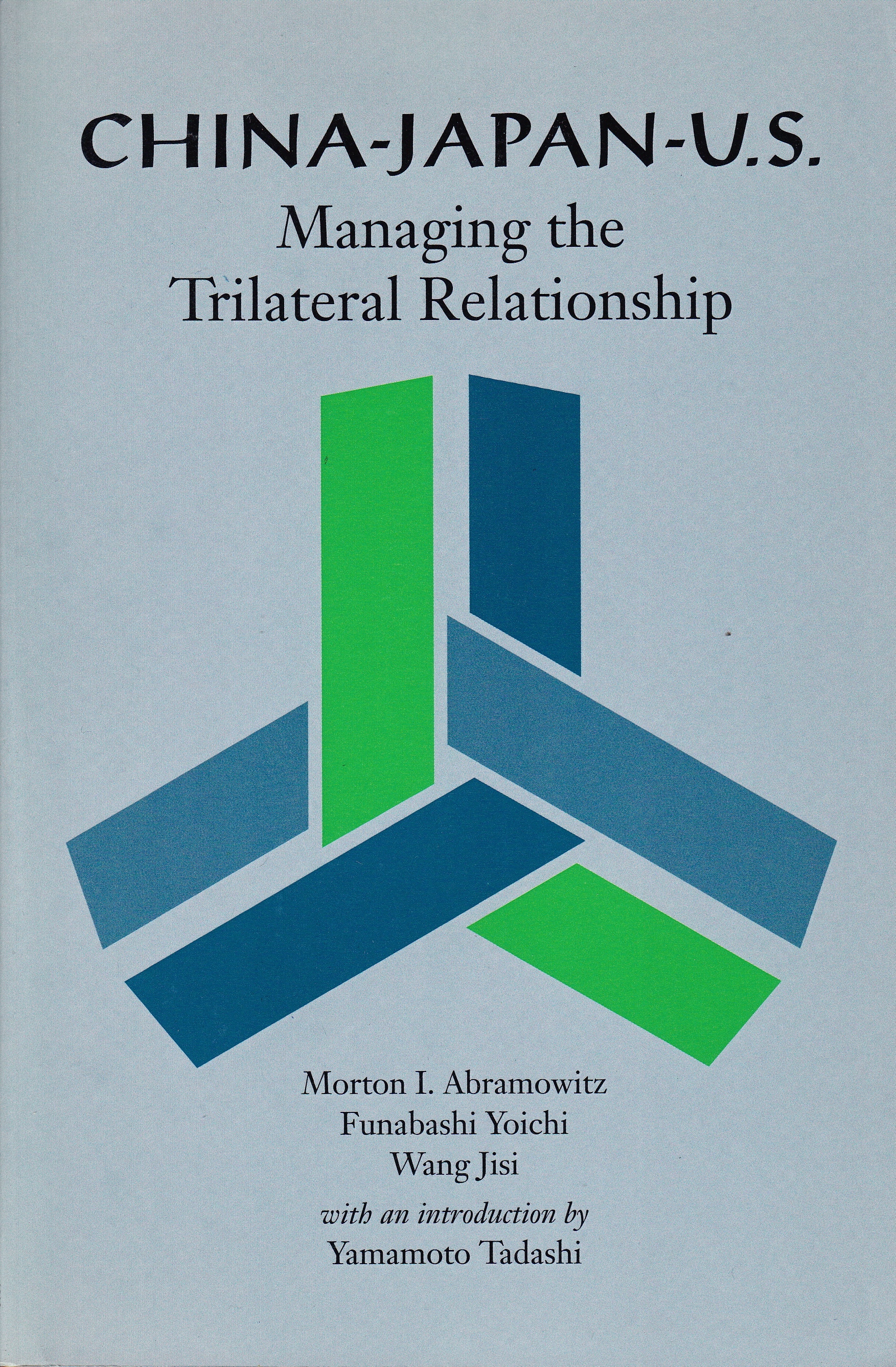Many policy analysts believe China-Japan-US relations to be the key triangle in world politics of the 21st century. While the emerging Asia Pacific region will have a profound impact on the future of the international system, the continuing security and prosperity of the region will be largely contingent upon enhanced cooperation between the region’s three dominant economies: China, Japan, and the United States.
The essays collected here, one by a leading foreign policy expert from each of the countries, suggest means to strengthen trilateral dialogue and cooperation. The authors discuss a wide range of issues that could affect the trilateral relationship, including US-Japan security cooperation, a possible Korean conflict and unification, Taiwan, and trade relations. They also examine historical and attitudinal factors that inhibit constructive interaction among the three. Their analyses lead to the conclusion that achieving substantive dialogue will be critical to the management of the trilateral relationship among these major actors in the most dynamic region of the world in the coming century.
This publication was the result of a study on the China-Japan-US Research and Dialogue Project, which was carried out as part of the Global ThinkNet Fellows program.
CONTENTS
- 1. Introduction: Is a China-Japan-US Trilateral Dialogue Possible?
- Tadashi Yamamoto, President, Japan Center for International Exchange
- 2. Building a Constructive Relationship
- Wang Jisi, Director, Institute of American Studies, Chinese Academy of Social Sciences
- 3. The Not-So-Plain Geometry of a Trilateral Relationship
- Morton I. Abramowitz, Senior Fellow, Council on Foreign Relations
- 4. Thinking Trilaterally
- Yoichi Funabashi, Chief Diplomatic Correspondent and Columnist for the Asahi Shimbun

